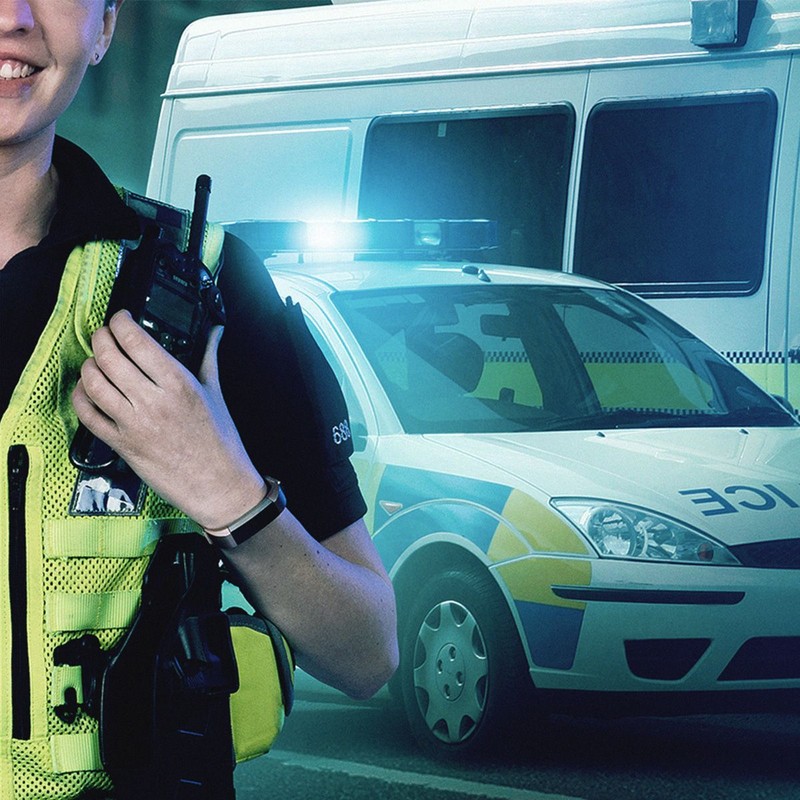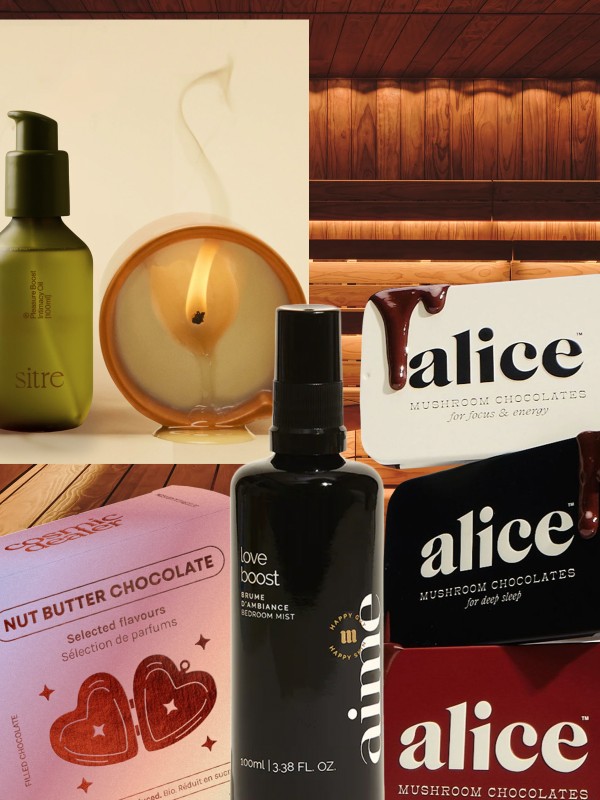
My Interesting Job: Police Officer
My role at North Yorkshire police is a police constable – otherwise referred to as a PC. We work right on the front line, out and about in the vans with the blue flashing lights, responding to incidents as they come in from the public, all of whom have called 999 for some reason or another. The type of incidents we attend are so varied. It could be anything from a road traffic accident right up to a burglary or domestic violence situation.
It was not my intention to join the police. In fact, my degree is actually in classical music. But after ending up in a job I hated in events management, I happened to meet a detective inspector who told me they were recruiting for voluntary special constables. I did that for a year and as soon as recruitment opened for full-time officers, I went for it.
The recruitment process is a long one. First, you have to fill out an online application, which is then followed by an assessment day which involves lots of role play to see how you react to different situations. There’s also a maths and an English test, and a round of situational tests. If you pass, you then move through to the interview stage, which takes place before a panel of people of different ranks. Overall, the whole thing takes about 12 months from start to finish.
If you’re accepted, you then start your training. First, you spend around 18 weeks in a classroom learning about different legislation. Then it’s another 15 weeks of being paired with a tutor constable – you’re in the car and expected to learn on the job. That said, there’s a lot of specific criteria you have to hit during these weeks, including learning how to interview suspects and following up after different incidents. You also have to prove you’re competent at dealing with around ten kinds of incidents, be it burglaries, traffic accidents or domestic violence events.
Once you’re signed off as competent, you’re on an 18-month probation. We don’t tend to go out in pairs in Yorkshire as there just aren’t enough resources – plus, Covid-19 has now made it pretty much impossible. The only time you might go out with someone is on a night shift, and it really depends on the incident.
Police officers all work on shifts. We do 12-hour day shifts from 7am-7pm and two 12-hour night shifts from 7pm-7am. Regardless, you start by going in for a team briefing to find out what’s happened since you were last on duty. Then, you wait for the calls to come in, as well as managing your own workload. Depending on the nature of a call, one or more officers then go out and attend the scene.
This kind of shift pattern actually suits me. Before, I definitely used to waste time at home in the evenings. Now, I get a full day off before a night shift and four days off after my second night shift. It does take its toll – I find eating properly one of the hardest challenges – but I have to say I sleep pretty well!
Certain incidents are really common. We always get shoplifters and domestic incidents. Burglaries aren’t actually that common in North Yorkshire, but there’s not much else that is a guarantee either way. One thing we are seeing more of are mental health crises, by which I mean active suicide attempts. Thankfully, the police do have the power to help people in the immediacy, like detaining those we believe might cause harm to themselves or others.
Being a police officer isn’t a job with lots of highs – after all, people don’t ring us when they’re having a good day. But if you’re able to arrest a burglar or get a case to court and get a custodial sentence, then that’s rewarding. You also get to meet lots of different kinds of people. I used to absolutely hate work, but now, I really enjoy my job. Being a member of the police is like being part of a family.
It’s actually a job with more lows – be it fatal road accidents, suicides or having to perform CPR on someone only to watch them die. I’ve definitely passed on a few final messages from people to their loved ones. Most people don’t face death on a daily basis like we do – they address it on day one of police training. Before this job, I’d never even seen a dead body. Now, I consider death just as natural as life – in fact I probably have far more appreciation for life in general.
One of the perks is that two days are never the same. I also get to do things that other people could only dream of – scaling the scaffolding of York Minster, driving at 140mph on the motorway, taking part in royal visits and acting as security at music concerts and the races. The novelty of the lights and sirens still hasn’t worn off, either.
The police force follows a really strict hierarchy. There are the PCs, then a sergeant who manages a team of PCs in a particular area. Above them, an inspector will manage a group of sergeants in a specific area across different shifts, while a chief inspector covers a specific area, too – for instance, ours is in charge of York & Selby. Above them you have the super intendant and from there on up, you’re more likely to be a politician or civil servant.
To become a sergeant, you have to sit an exam. The written test is mainly on legislation, police practices and traffic. If you pass, you then have to ‘act up’ as a sergeant to get some experience. Then, you sit your boards, which involves an interview in front of a panel about your experience and if they think you’re competent, then you get promoted. It used to be an unwritten rule that you had to do five years before taking the exam, but these days we’re promoting quicker, with people tending to take it after two.
Resources are the biggest problem on the front line. Not because people don’t want to join the force, there just aren’t enough places available. Things are better than when I started out, though. Five years ago, when I was being recruited, it was the first time North Yorkshire had done a hiring round in many years. Now, we have a couple of intakes a year.
North Yorkshire is the focus of series two of The Shift. Our chief constable is female – which is still quite unusual – and it had been the case over at West Yorkshire during the first series. However, when the time to film the second series rolled round, a man was in charge and he wasn’t interested in continuing, so they moved over to North Yorkshire. I may not have been interested in taking part if I hadn’t personally experienced a bit of push back for being a female officer. I felt compelled to prove we’re just as competent as the male officers.
Having television cameras follow you around isn’t a big deal. As police officers, we’re so scrutinised as it is. We all wear body cameras and the public film us on their phones all the time. The only thing that’s different is being asked how I feel after an incident. We’re normally too busy to think about that.
The pandemic has definitely made our work more complicated. For one thing, we’re learning all the new legislation as it’s rolled out by the government. Last year, the tiers were a nightmare to get your head round. It’s also just another responsibility on top of what we already have to deal with – be it antisocial behaviour in the parks because people have nowhere else to go or illegal house parties.
I’m very lucky my boyfriend is a PC as well. After work, if there’s something we want to talk about then we do, but we only dedicate a bit of time to it – we never let it take over an evening or an entire day off. It’s not surprising there are lots of couples in the police. I think I would struggle more if I wasn’t with Dan.
There are mental health support services available if you want them. I have accepted referrals in the past and some of them are automatic if you’ve been called out to a particularly horrible incident. Usually, an inspector with more training will talk to you immediately afterwards and then again 28 days later to see how you’re getting on.
Anyone considering joining the police should do it. These days, there are more women on the front line – it’s about a 60:40 male-female split at North Yorkshire. But you have to have a thick skin – especially if you’re a woman. There will be times when people ask if you can handle certain things on your own or tell you they’re not taking orders from a woman. You have to know how to deal with that.
Other qualities to be a good police officer include being able to think on your feet, assess situations under pressure and having great communication skills. You need to be able to talk to an array of different people – victims, suspects, colleagues – so you’ve got to be unflappable and know when not to react. One of the pros is that this is a job where your personality counts more than your qualifications. For me, my background in classical music and playing in an orchestra helped me know how to work as a team and be part of something whole.
The one thing I’d tell the public is that the police are people too. When we turn up somewhere, everyone sees the uniform first – but we’re still human beings underneath it all.
See Alicia Oakes in action on The Shift: Women In The Force on Sky, with all episodes available to watch on demand at Sky.com.
DISCLAIMER: We endeavour to always credit the correct original source of every image we use. If you think a credit may be incorrect, please contact us at info@sheerluxe.com.





